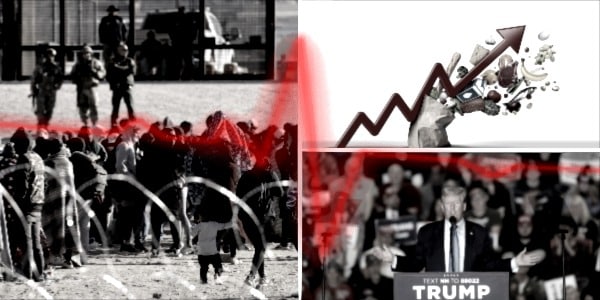Russia Intensifies Attacks on Ukraine
Russia launched a massive overnight barrage of missiles and drones targeting over half of Ukraine. The aggressive assault resulted in significant damage and casualties across multiple regions. Ukrainian authorities are currently assessing the full extent of the destruction and preparing for potential further assaults.
Texas Judge Halts Biden’s Immigration Program
In a significant legal development, a Texas judge has ordered a pause on President Biden’s program that grants legal status to spouses of U.S. citizens. The Biden administration is expected to appeal the decision, triggering a prolonged legal battle over immigration policies.
Special Counsel Pushes to Reinstate Trump Document Case
Special counsel Jack Smith urged an appeals court to reinstate the case involving classified documents against former President Trump. The case has seen numerous legal twists and turns, reflecting the contentious nature of the investigation into Trump’s handling of sensitive materials.
U.S. Soldier to Plead Guilty to Desertion
Army private Travis King, who fled to North Korea, has agreed to plead guilty to charges of desertion. The case has drawn international attention, highlighting the complex issues surrounding military desertion and international diplomacy.
Philadelphia Airport Celebrates Therapy Dogs
In a heartwarming move, Philadelphia International Airport celebrated National Dog Day by recognizing its brigade of therapy canines. These dogs have provided comfort and stress relief to countless travelers, particularly during the challenging periods of the COVID-19 pandemic.
Canada Imposes Tariff on Chinese EVs
Canada has announced a 100% tariff on imports of Chinese-manufactured electric vehicles. This move mirrors similar actions taken by the United States, indicating a growing trend of economic countermeasures against China.
Burning Man Festival Death Investigated
Authorities are investigating the tragic death of a 39-year-old woman on the first day of the Burning Man festival. The incident has cast a somber mood over the event, which is known for its vibrant and eclectic atmosphere.
Venezuelan Electoral Controversy
An electoral official in Venezuela has raised serious concerns about the transparency and veracity of President Maduro’s re-election. This statement has fueled ongoing debates about the legitimacy of Maduro’s administration and the state of democracy in Venezuela.
Mariah Carey Mourns Family Loss
Singer Mariah Carey is mourning the loss of her mother and sister, who passed away on the same day. Carey expressed her heartbreak in a public statement, drawing condolences from fans and fellow celebrities worldwide.
Judge Orders Shkreli to Surrender Wu-Tang Album
Infamous “Pharma Bro” Martin Shkreli has been ordered by a judge to turn over all copies of the unreleased Wu-Tang Clan album. Shkreli, currently serving a prison sentence for fraud, had previously refused to relinquish the album, leading to a protracted legal battle.
Taliban’s Restrictive Policies Criticized
The United Nations has warned that the Taliban’s new vice and virtue laws pose a “distressing vision” for Afghanistan. These laws severely restrict women’s rights and freedoms, drawing widespread international condemnation.
Trump and Harris Verbally Spar Over Debate Rules
In the lead-up to an upcoming debate, former President Trump and Vice President Kamala Harris have engaged in a public spat over muted microphones. This dispute underscores the high stakes and intense rivalry as the political landscape heats up ahead of the next election.
Alabama Man Fatally Shoots Family
In a tragic event, an Alabama man, distraught over the planned sale of his late mother’s home, shot and killed four family members before taking his own life. The incident has shocked the local community and prompted discussions on mental health and gun control.
Israeli Strikes on Lebanon
Amid heightened tensions, Israel has launched a series of strikes on targets in Lebanon. The Israeli Defense Forces claim the strikes are in response to prepared offensives by Hezbollah, further escalating the already volatile situation in the region.
That wraps up today’s most pressing news. Stay tuned for more updates and in-depth analysis on LifeLine™ Media.


Join the discussion!
Be the FIRST to comment on ‘RUSSIA RAMPAGES: Missile Barrage Targets Ukraine, Texas Judge Blocks Biden’s Immigration Plan, and Trump Faces Legal Onslaught’